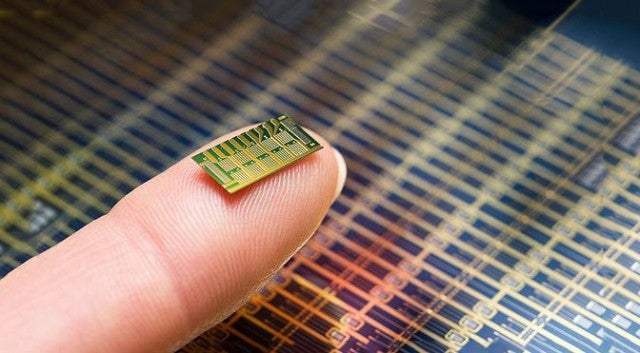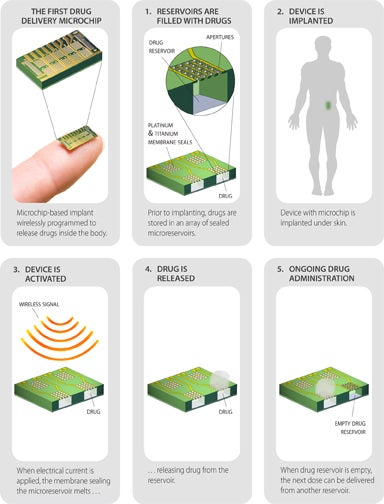Remote-controlled contraceptive chip that lasts for 16 years to go on sale 'by 2018'
US invention is implanted under the skin and releases daily hormone doses

Your support helps us to tell the story
From reproductive rights to climate change to Big Tech, The Independent is on the ground when the story is developing. Whether it's investigating the financials of Elon Musk's pro-Trump PAC or producing our latest documentary, 'The A Word', which shines a light on the American women fighting for reproductive rights, we know how important it is to parse out the facts from the messaging.
At such a critical moment in US history, we need reporters on the ground. Your donation allows us to keep sending journalists to speak to both sides of the story.
The Independent is trusted by Americans across the entire political spectrum. And unlike many other quality news outlets, we choose not to lock Americans out of our reporting and analysis with paywalls. We believe quality journalism should be available to everyone, paid for by those who can afford it.
Your support makes all the difference.A wireless ‘contraceptive chip’ that’s implanted under the skin and can be controlled remotely could be available to consumers by 2018.
At just 20mm x 20mm x 7mm in size, the MicroCHIPS device is smaller than a postage stamp but stores a 16-year supply of the hormone levonorgestrel to be released on a daily basis.
Engineers from Massachusetts created the device in response to a challenge by Microsoft founder Bill Gates for a long-lasting birth control method that can be turned on and off. Gates has since backed the device, which will be submitted for pre-clinical testing in the US next year.
The chip can be implanted under the skin of the upper arm, abdomen or buttocks, and uses a tiny titanium and platinum seal that is melted each to release 30 micrograms of the hormone directly in to the body.

This daily dose can be turned on and off by the user, with researchers currently working on various security features to keep the device safe from hackers.
"Communication with the implant has to occur at skin contact level distance," said Dr Robert Farra from MIT. "Someone across the room cannot re-programme your implant. Then we have secure encryption. That prevents someone from trying to interpret or intervene between the communications."
Its creators are planning to price the MicroCHIPS ‘competitively’ and say it could be implanted as an outpatient procedure, providing value for money by offering contraception for half the user’s reproductive life.
Join our commenting forum
Join thought-provoking conversations, follow other Independent readers and see their replies
Comments